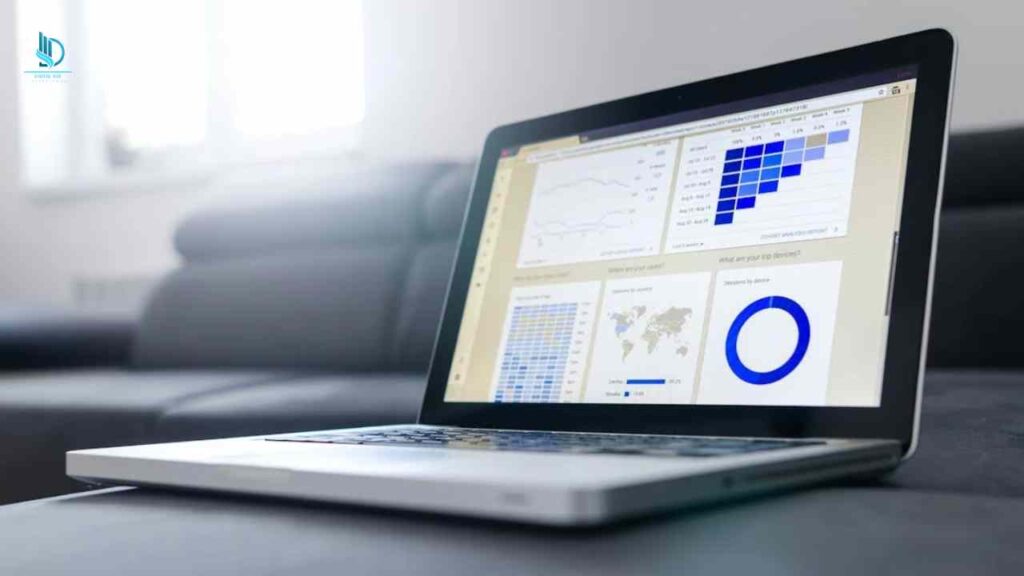Bidding, a core component of digital marketing strategies, involves setting a maximum price you’re willing to pay for a specific ad placement. As businesses strive to establish their online presence, digital marketing bidding has emerged as a vital strategy. This is especially crucial for platforms like Google Ads and social media advertising, where ads are displayed based on a competitive auction.
At Digitalasb Technologies, we understand the complexities of digital marketing and the significance of bidding in maximizing ROI and reaching target audiences effectively.
Understanding Digital Marketing Bidding
Digital marketing bidding refers to the process of placing bids on online advertising platforms to secure ad placements. This is typically done through pay-per-click (PPC) advertising, where businesses bid on keywords relevant to their products or services.
The primary goal is to achieve visibility on search engines, social media, and various online platforms, driving traffic and conversions.
Key Bidding Strategies
- Manual Bidding
- Automated Bidding
Manual Bidding:
- Pros: Provides granular control over ad spend and targeting.
- Cons: Time-consuming and requires constant monitoring.
Automated Bidding:
- Target CPA: Sets a desired cost per acquisition (CPA) and automatically adjusts bids to achieve it.
- Target ROAS: Targets a specific return on ad spend (ROAS).
- Maximize Conversions: Aims to get as many conversions as possible within your budget.
- Maximize Clicks: Focuses on getting the most clicks for your budget.
Know More – POEM Framework in Digital Marketing
The Importance of a Strategic Bidding Approach
An effective bidding strategy can make all the difference in the success of a digital marketing campaign. It involves careful analysis of keywords, audience targeting, and budget allocation. By implementing a strategic approach, businesses can not only enhance their visibility but also improve their return on investment (ROI). Factors Affecting Bids: –
- Ad Quality: Higher-quality ads are more likely to rank higher, even with lower bids.
- Keywords: The competitiveness of keywords significantly impacts bidding.
- Ad Extensions: Adding relevant extensions can improve ad visibility and click-through rates (CTRs).
- Landing Page Experience: A good landing page experience can increase conversion rates and lower costs per conversion.
- Bidding Time: Bids can vary throughout the day due to fluctuations in competition and user behavior.
1. Keyword Research and Selection
At the core of successful digital marketing bidding lies keyword research. Selecting the right keywords is crucial for achieving visibility. Utilizing tools like Google Keyword Planner or SEMrush can help identify high-traffic keywords that align with your business goals. Focus on a mix of short-tail and long-tail keywords to capture both broad and niche audiences.
2. Setting a Realistic Budget
Budgeting is a critical component of digital marketing bidding. It’s essential to set a budget that aligns with your marketing objectives and anticipated ROI. Start with a daily budget that allows for flexibility and adjust based on performance metrics. Monitor your spending closely to ensure that you remain within budget while maximizing ad exposure.
3. Choosing the Right Bidding Strategy
There are various bidding strategies available, each catering to different marketing objectives:
- Manual Bidding: This allows for greater control over individual keyword bids, making it ideal for those who want to optimize their campaigns actively.
- Automatic Bidding: This option lets the platform adjust bids in real-time, maximizing the likelihood of conversions without manual intervention.
- Target CPA (Cost Per Acquisition): This strategy focuses on achieving a specific cost per conversion, ensuring that your bids align with your overall ROI goals.
Selecting the right strategy will depend on your campaign goals, budget, and level of expertise in digital marketing. Check Also: – SCO Digital Marketing Strategies
4. Ad Quality and Relevance
Quality is paramount in digital marketing bidding. Higher quality ads tend to achieve better placement at lower costs. To enhance ad quality:
- Create Compelling Ad Copy: Your ad copy should be engaging, relevant, and aligned with the keywords being targeted.
- Utilize Extensions: Ad extensions, such as site links, callouts, and structured snippets, can increase the visibility and effectiveness of your ads.
- Landing Page Optimization: Ensure that your landing pages are relevant, user-friendly, and optimized for conversions. A seamless user experience will contribute significantly to the overall success of your bidding strategy.
Also Check – Marketing Goals for Facebook Ads with Campaign
5. Continuous Monitoring and Optimization
Digital marketing bidding is not a set-it-and-forget-it strategy. Continuous monitoring and optimization are crucial for success. Regularly analyze performance metrics, including click-through rates (CTR), conversion rates, and cost per acquisition (CPA). Use this data to make informed adjustments to your bidding strategy, optimizing keywords, budgets, and ad placements as needed.
Leveraging Analytics for Better Decision Making
Analytics tools provide valuable insights that can enhance your bidding strategy. Google Analytics, for instance, allows businesses to track website traffic, user behavior, and conversion metrics.
By leveraging this data, we can make informed decisions regarding keyword adjustments, budget reallocations, and audience targeting.
1. Tracking Conversions
Tracking conversions is essential for understanding the effectiveness of your digital marketing efforts. Set up conversion tracking to monitor specific actions, such as form submissions or product purchases.
This data can guide your bidding strategy, ensuring that you allocate budget to the most effective channels and campaigns.
2. A/B Testing for Continuous Improvement
A/B testing is a powerful method for optimizing ad performance. By testing different ad variations, landing pages, or bidding strategies, businesses can identify what resonates best with their audience. Implement changes based on the results, continuously refining your approach for maximum impact. Read More – Social Media Analytics Tools
The Future of Digital Marketing Bidding
As technology and consumer behavior evolve, so will the landscape of digital marketing bidding. Emerging trends, such as machine learning and artificial intelligence, are set to revolutionize bidding strategies. These technologies can analyze vast amounts of data and make real-time adjustments to optimize bidding, ultimately leading to improved performance.
1. Automation and AI Integration
Automation is becoming increasingly prevalent in traditional marketing bidding. By integrating AI-driven tools, businesses can streamline their bidding processes, enhance targeting, and improve ad performance. This not only saves time but also enables marketers to focus on strategic decision-making rather than manual adjustments.
2. Enhanced Targeting Capabilities
As data collection and analysis become more sophisticated, targeting capabilities will continue to improve. Businesses will be able to segment audiences more effectively, tailoring their bidding strategies to reach specific demographics and interests.
This level of precision will contribute to higher conversion rates and better ROI. Check Also: – Six Pillars of Digital Marketing
Bidding Tips for Digital Marketing Success
Effective bidding is crucial for maximizing your return on investment (ROI) in digital marketing campaigns. Here are some essential tips to help you optimize your digital marketing bidding strategies: –
- Understand Your Goals: Clearly define your objectives and align your bidding strategies accordingly.
- Conduct Thorough Keyword Research: Identify relevant keywords, assess competition, and utilize keyword tools.
- Create High-Quality Ads: Write engaging ad copy, ensure relevant landing pages, and use ad extensions.
- Optimize Landing Pages: Design user-friendly landing pages with fast load times and clear calls to action.
- Set Appropriate Bids: Start with manual bidding, consider automated bidding, and monitor and adjust bids regularly.
- Utilize Bidding Tools: Leverage platform features and third-party tools to streamline bidding and analysis.
- A/B Testing: Experiment with different elements and measure results to identify the most effective combinations.
Also Check: – How to Calculate CPR in Digital Marketing
Conclusion
In conclusion, digital marketing bidding is a fundamental component of any successful online marketing strategy. By implementing a well-researched, strategic approach, businesses can enhance their visibility, drive traffic, and achieve higher conversions. At Digitalasb Technologies, we are committed to helping our clients navigate the complexities of digital marketing, ensuring that their bidding strategies yield optimal results.
For businesses looking to enhance their online presence through effective digital marketing bid, partnering with experts like Digitalasb Technologies is the key to unlocking success in the digital realm.




